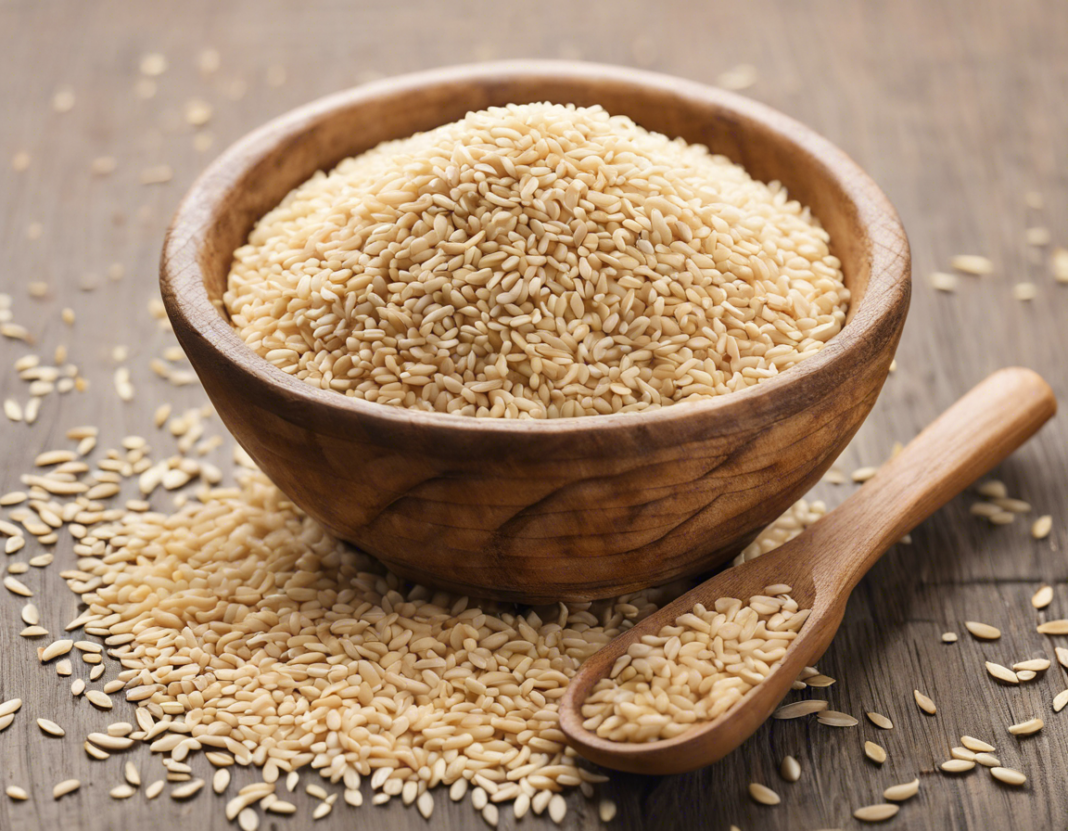Sesame seeds, known as “Til” in Hindi, are one of the oldest oilseed crops known to humanity. These tiny seeds are packed with a powerhouse of nutrients and have been valued for their culinary and medicinal properties for centuries. In this article, we will delve deeper into the Hindi name and the myriad health benefits of sesame seeds.
Introduction to Sesame Seeds (Til)
Sesame seeds are derived from the sesame plant (Sesamum indicum) and are available in a variety of colors, including white, black, and brown. They have a nutty flavor and are commonly used in cooking, baking, and as a garnish in various cuisines worldwide. Sesame seeds are known for their high oil content and are a rich source of essential nutrients, including healthy fats, protein, dietary fiber, vitamins, and minerals.
Nutritional Profile of Sesame Seeds (Til)
Sesame seeds are nutritionally dense and offer a wide range of health benefits. Here is a breakdown of the key nutrients found in sesame seeds:
1. Healthy Fats
Sesame seeds are rich in healthy fats, including omega-6 fatty acids. These fats play a crucial role in supporting heart health, reducing inflammation, and supporting brain function.
2. Protein
Sesame seeds are a good source of plant-based protein, making them an excellent addition to vegetarian and vegan diets. Protein is essential for muscle repair, growth, and overall health.
3. Dietary Fiber
Sesame seeds are packed with dietary fiber, which supports digestive health, promotes satiety, and helps regulate blood sugar levels.
4. Vitamins and Minerals
Sesame seeds contain important vitamins and minerals such as calcium, iron, magnesium, phosphorus, zinc, and B vitamins. These nutrients play a vital role in maintaining overall health and well-being.
Health Benefits of Sesame Seeds (Til)
Sesame seeds offer a wide array of health benefits, thanks to their nutrient-rich composition. Some of the key health benefits of sesame seeds include:
1. Heart Health
The healthy fats present in sesame seeds can help lower cholesterol levels, reduce inflammation, and support overall heart health. Consuming sesame seeds regularly may help reduce the risk of heart disease and stroke.
2. Bone Health
Sesame seeds are an excellent source of calcium, which is essential for maintaining strong and healthy bones. Including sesame seeds in your diet can help prevent conditions like osteoporosis and improve bone density.
3. Antioxidant Properties
Sesame seeds are rich in antioxidants such as sesamol and sesamin, which help protect cells from damage caused by free radicals. Antioxidants play a crucial role in reducing the risk of chronic diseases and supporting overall health.
4. Blood Sugar Control
The dietary fiber present in sesame seeds can help regulate blood sugar levels and improve insulin sensitivity. This can be beneficial for individuals with diabetes or those at risk of developing the condition.
5. Weight Management
Due to their high fiber and protein content, sesame seeds can help promote feelings of fullness and satiety. Including sesame seeds in your diet may help prevent overeating and support weight management goals.
Incorporating Sesame Seeds into Your Diet
There are numerous ways to incorporate sesame seeds (Til) into your daily diet to reap their health benefits. Here are some ideas to help you incorporate sesame seeds into your meals:
- Add toasted sesame seeds to salads, stir-fries, and soups for a crunchy texture and nutty flavor.
- Use sesame seed paste (tahini) in dressings, dips, and marinades for a rich and creamy texture.
- Sprinkle sesame seeds on top of yogurt, oatmeal, or smoothie bowls for a nutritious boost.
- Include sesame oil in cooking and baking to add a subtle nutty flavor to your dishes.
FAQs (Frequently Asked Questions) About Sesame Seeds (Til)
1. Are sesame seeds and til the same thing?
Yes, sesame seeds are commonly referred to as “til” in Hindi.
2. How should sesame seeds be stored to maintain freshness?
Sesame seeds should be stored in an airtight container in a cool, dark place to maintain their freshness. Refrigerating them can extend their shelf life.
3. Are there any potential allergens in sesame seeds?
Sesame seeds are considered a common allergen, and individuals with sesame seed allergies should avoid consuming them.
4. Can sesame seeds help improve skin health?
Sesame seeds are rich in antioxidants and anti-inflammatory compounds that may help improve skin health and promote a youthful complexion.
5. How can sesame seeds be used in traditional Indian cuisine?
Sesame seeds are commonly used in Indian cuisine to make til chikki (sesame seed bars), til laddu (sesame seed sweet balls), and til chutney (sesame seed dip).
6. Are there any precautions to consider when consuming sesame seeds?
Individuals taking blood-thinning medications should consume sesame seeds in moderation, as they contain natural compounds that may have anticoagulant effects.
7. Can sesame seeds be beneficial for hair health?
Sesame seeds are a good source of essential nutrients like iron and zinc, which are important for maintaining healthy hair and promoting hair growth.
8. What is the recommended daily intake of sesame seeds for adults?
The recommended daily intake of sesame seeds for adults is about 1-2 tablespoons, as part of a balanced diet.
9. Do sesame seeds need to be ground for better nutrient absorption?
While grinding sesame seeds can enhance nutrient absorption for some individuals, consuming them whole also provides many health benefits due to their rich nutrient profile.
10. Can sesame seeds be used in gluten-free baking?
Yes, sesame seeds are naturally gluten-free and can be used in gluten-free baking recipes to add flavor, texture, and nutritional value.
In conclusion, sesame seeds (Til) are a versatile and nutritious ingredient that can easily be incorporated into a healthy diet. Whether sprinkled on top of dishes or used in cooking and baking, sesame seeds offer a wide range of health benefits that support overall well-being. Next time you’re in the kitchen, consider reaching for a sprinkle of sesame seeds to add flavor, texture, and a nutritional boost to your meals.

